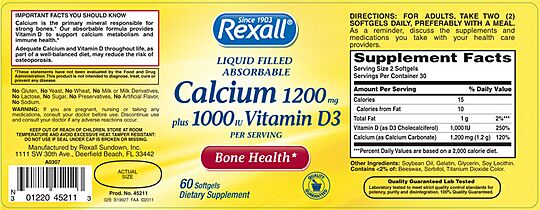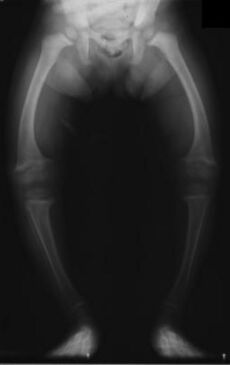Vitamin D facts for kids
Quick facts for kids Vitamin D |
|
|---|---|
| Drug class | |

Cholecalciferol (D3)
|
|
| Class identifiers | |
| Synonyms | Calciferols |
| Use | Rickets, osteoporosis, osteomalacia, vitamin D deficiency |
| ATC code | A11CC |
| Biological target | vitamin D receptor |
| Clinical data | |
| Drugs.com | MedFacts Natural Products |
| External links | |
| MeSH | D014807 |
| Legal status | |
Vitamin D is a special nutrient that our bodies need to stay healthy. It is a fat-soluble vitamin, which means it is stored in the body's fat tissue. Its most important job is to help our bodies absorb calcium, which is essential for building strong bones and teeth.
Vitamin D is often called the "sunshine vitamin" because our skin can make it when exposed to sunlight. You can also get it from certain foods and supplements. The two most common forms for humans are vitamin D3 (cholecalciferol) and vitamin D2 (ergocalciferol).
Unlike other vitamins, our bodies can make most of the vitamin D we need with help from the sun. However, many people may not get enough sunlight, especially during winter or if they live in cities. Because of this, many foods like milk and cereal have vitamin D added to them.
Contents
Types of Vitamin D
There are several forms of vitamin D, but the two most important for our health are vitamin D2 and vitamin D3.
- Vitamin D2 (ergocalciferol) is made by plants, like mushrooms, when they are exposed to ultraviolet (UV) light.
- Vitamin D3 (cholecalciferol) is the type our skin makes when we are in the sun. It is also found in animal foods, such as fatty fish and egg yolks.
Both types are used by our bodies, but D3 is the form our bodies make naturally. After we get vitamin D from the sun or food, our liver and kidneys change it into an active form that the body can use.
Why Vitamin D is Important
Vitamin D plays a huge role in keeping you healthy, especially your bones.
Strong Bones and Teeth
Think of calcium as the bricks for building strong bones. Vitamin D is like the construction worker that tells your body to use those bricks. When you eat foods with calcium, Vitamin D helps your intestines absorb it into your blood. Without enough Vitamin D, your body can't get the calcium it needs, which can make bones weak.
A Healthy Immune System
Vitamin D also helps your immune system, which is your body's defense against germs that can make you sick. It helps keep your immune cells working properly so they can fight off viruses and bacteria.
How We Get Vitamin D
There are three main ways to get the vitamin D your body needs: from the sun, from food, and from supplements.
From the Sun
When your bare skin is exposed to a type of sunlight called ultraviolet B (UVB) radiation, it starts a process that creates vitamin D3. You don't need to get a tan or a sunburn to make vitamin D. For many people, just 15-20 minutes of sun on their face, arms, and legs a few times a week is enough.
However, the amount of vitamin D you make depends on many things:
- Time of year: In winter, the sun's rays are weaker, and it's harder to make vitamin D.
- Where you live: People who live farther from the equator get less UVB light.
- Skin color: Darker skin has more melanin, a pigment that acts like a natural sunscreen. It protects the skin but also reduces vitamin D production.
- Sunscreen: Sunscreen blocks UVB rays, which is important for preventing skin cancer but also stops vitamin D production.
From Food
Very few foods naturally contain a lot of vitamin D. The best sources are fatty fish.
- Fatty fish like salmon, trout, and mackerel
- Fish liver oils, such as cod liver oil
- Egg yolks
- Beef liver
- Cheese
Because it's hard to get enough vitamin D from food alone, many common foods have vitamin D added to them. This is called fortification. Foods that are often fortified include:
- Milk and plant-based milks (like soy, almond, and oat milk)
- Breakfast cereals
- Orange juice
- Yogurt
- Infant formula
Not Getting Enough Vitamin D
When someone doesn't have enough vitamin D in their body, it's called a vitamin D deficiency. This is a common problem around the world.
What Causes a Deficiency?
A deficiency can happen for a few reasons:
- Not enough sun: People who live in places with long winters, spend a lot of time indoors, or cover their skin when outside might not make enough vitamin D.
- Darker skin: Skin with more melanin makes it harder for the body to produce vitamin D from sunlight.
- Not enough in your diet: If you don't eat enough foods that contain or are fortified with vitamin D, you might not get enough.
- Health conditions: Some diseases that affect the liver, kidneys, or intestines can make it difficult for the body to absorb or use vitamin D.
Rickets: A Disease of Weak Bones
In children, a serious lack of vitamin D can cause a disease called rickets. Rickets makes bones soft and weak. As a child with rickets grows and starts to walk, their leg bones can bend and become bowed.
Long ago, rickets was a common problem for children. Today, it is rare in many countries because foods like milk are often fortified with vitamin D.
Osteomalacia and Osteoporosis
In adults, a lack of vitamin D can lead to a condition called osteomalacia, which means "soft bones." It can cause bone pain and muscle weakness.
Over time, not getting enough vitamin D and calcium can also lead to osteoporosis. This is a condition where bones become thin and brittle, making them more likely to break. It is most common in older adults.
Can You Get Too Much Vitamin D?
It is possible to get too much vitamin D, but it is very rare. This condition is called vitamin D toxicity or hypervitaminosis D. It almost always happens from taking very high doses of vitamin D supplements for a long time.
You cannot get too much vitamin D from the sun. Your body is smart and stops making it when you have enough.
Having too much vitamin D can cause high levels of calcium in your blood. This can lead to problems like nausea, vomiting, and in serious cases, kidney problems. It is important to follow the recommended amounts and talk to a doctor before taking high-dose supplements.
History of the "Sunshine Vitamin"
In the 1800s, a disease called rickets was very common in the industrial cities of northern Europe and North America. Doctors noticed that children living in these cloudy, polluted cities often had weak, bent bones.
For a long time, people knew that cod liver oil, a fish oil supplement, could prevent and cure rickets. But no one knew why. In 1914, scientists discovered a substance in cod liver oil that they named "vitamin A". At first, they thought vitamin A was what stopped rickets.
In 1922, a researcher named Elmer McCollum did an experiment. He took cod liver oil and destroyed all the vitamin A in it. When he gave this oil to dogs with rickets, they still got better! This proved there was another nutrient in the oil. He called it vitamin D, because it was the fourth vitamin to be discovered.
Around the same time, scientists also found that simply exposing children to sunlight could cure rickets. This led to the understanding that light and vitamin D were connected. In 1928, Adolf Windaus won the Nobel Prize in Chemistry for his work on how cholesterol-like substances in the skin could be turned into vitamin D.
These discoveries led to fortifying milk with vitamin D in the 1930s, which nearly wiped out rickets in many parts of the world.
See also
 In Spanish: Vitamina D para niños
In Spanish: Vitamina D para niños
 | Bayard Rustin |
 | Jeannette Carter |
 | Jeremiah A. Brown |









